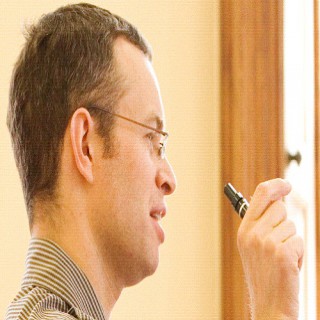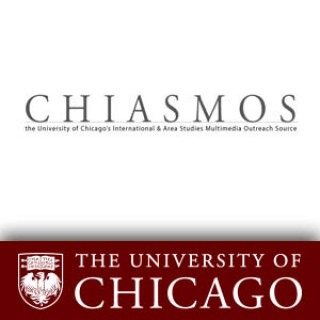Podcasts about professor takahashi
- 5PODCASTS
- 5EPISODES
- 1h 39mAVG DURATION
- ?INFREQUENT EPISODES
- Mar 15, 2017LATEST
POPULARITY
Latest podcast episodes about professor takahashi
Programme 284, Akihiko Takahashi on Lesson Study & More (15-3-17)
Presented and produced by Seán Delaney. On this week's programme I am joined by Professor Akihiko Takahashi from the College of Education at De Paul University who talks about the teaching of mathematics, about Lesson Study as a form of professional development for teachers and other matters. I spoke with Professor Takahashi after he addressed an event hosted by the UCD Japan Group. Among the items we discussed were the following: Why learn mathematics? How do children learn to solve problems? What is lesson study? Why in Japan lunch is considered to be an opportunity for teaching How lesson study helps teachers to grow Why collaboration is the foundation to being an effective teacher Why live classroom observation is better than observing teaching on video How the Japanese learn from other cultures Are teachers born or made?
Postwar Japan on the Brink: Militarism, Colonialism, Yasukuni Shrine (Audio)
If you experience any technical difficulties with this video or would like to make an accessibility-related request, please send a message to digicomm@uchicago.edu. The inaugural lecture of The Tetsuo Najita Distinguished Lecture Series in Japanese Studies, by Professor Tetsuya Takahashi, University of TokyoProfessor Takahashi's writings, including his 2005 bestseller, The Yasukuni Issue, make unmistakably clear that the role of the Shrine is antithetical to democratic values in Japan and to reconciliation with Asia, which requires acknowledgment of the harms inflicted through colonialism and war. The subject of his lecture is Japan at a crossroads today, its hard-won postwar democratic values at stake as never before.Professor Takahashi teaches philosophy in the Graduate School of Arts and Sciences at the University of Tokyo. He specializes in contemporary European philosophy and has been particularly interested in the ethical aspects of the work of Jacques Derrida.
Postwar Japan on the Brink: Militarism, Colonialism, Yasukuni Shrine
If you experience any technical difficulties with this video or would like to make an accessibility-related request, please send a message to digicomm@uchicago.edu. The inaugural lecture of The Tetsuo Najita Distinguished Lecture Series in Japanese Studies, by Professor Tetsuya Takahashi, University of TokyoProfessor Takahashi's writings, including his 2005 bestseller, The Yasukuni Issue, make unmistakably clear that the role of the Shrine is antithetical to democratic values in Japan and to reconciliation with Asia, which requires acknowledgment of the harms inflicted through colonialism and war. The subject of his lecture is Japan at a crossroads today, its hard-won postwar democratic values at stake as never before.Professor Takahashi teaches philosophy in the Graduate School of Arts and Sciences at the University of Tokyo. He specializes in contemporary European philosophy and has been particularly interested in the ethical aspects of the work of Jacques Derrida.
"Postwar Japan on the Brink: Militarism, Colonialism, Yasukuni Shrine"
Professor Takahashi's writings, including his 2005 bestseller, The Yasukuni Issue, make unmistakably clear that the role of the Shrine is antithetical to democratic values in Japan and to reconciliation with Asia, which requires acknowledgment of the harms inflicted through colonialism and war. The subject of his lecture is Japan at a crossroads today, its hard-won postwar democratic values at stake as never before. Professor Takahashi teaches philosophy in the Graduate School of Arts and Sciences at the University of Tokyo. He specializes in contemporary European philosophy and has been particularly interested in the ethical aspects of the work of Jacques Derrida. Sponsored by the Japan Committee of the Center for East Asian Studies and the Center for International Studies.
"Postwar Japan on the Brink: Militarism, Colonialism, Yasukuni Shrine"
Professor Takahashi's writings, including his 2005 bestseller, The Yasukuni Issue, make unmistakably clear that the role of the Shrine is antithetical to democratic values in Japan and to reconciliation with Asia, which requires acknowledgment of the harms inflicted through colonialism and war. The subject of his lecture is Japan at a crossroads today, its hard-won postwar democratic values at stake as never before. Professor Takahashi teaches philosophy in the Graduate School of Arts and Sciences at the University of Tokyo. He specializes in contemporary European philosophy and has been particularly interested in the ethical aspects of the work of Jacques Derrida. Sponsored by the Japan Committee of the Center for East Asian Studies and the Center for International Studies.




![CHIASMOS: The University of Chicago International and Area Studies Multimedia Outreach Source [video]](https://ivyfm.s3.amazonaws.com/i320/156658.jpg)
![CHIASMOS: The University of Chicago International and Area Studies Multimedia Outreach Source [audio]](https://ivyfm.s3.amazonaws.com/i320/156657.jpg)


